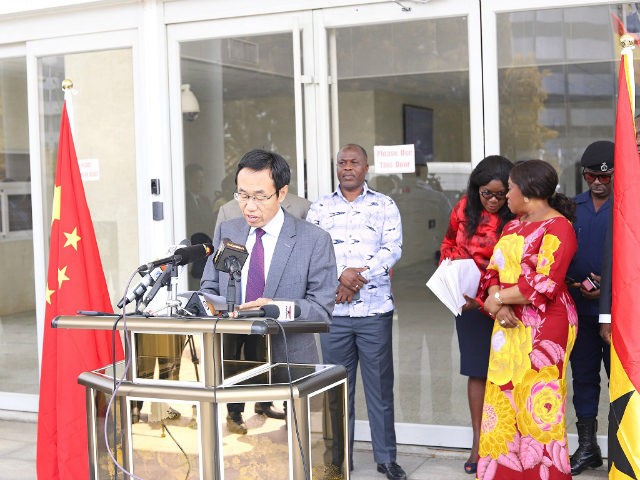Ghana Bishop Accuses China of Holding His Country ‘Captive’

A bishop in Ghana has denounced China’s growing economic influence in his country, saying that, thanks to China, the people are living in “captivity in [their] own land.”
In a videotaped sermon that has gone viral across the country, Bishop Joseph Francis Kweku Essien of Wiawso said the Chinese are taking over key industries and putting native Ghanaians out of work.
“There is a place called Wassa Akropong. The town at the moment has gotten a new name known as Wassa China. How did Wassa Akropong get that name?” the bishop askedrhetorically.
“The place is infested with Chinese. Chinese are now roasting plantain and Chinese selling sugar cane. These Chinese are using our people,” he said.
Bishop Essien accused the political leaders of his country of complicity, watching as the Chinese take over without lifting a hand to defend their own people.
“There are assemblymen and MPs. There are chiefs and they see it,” Essien said. “It is like nobody can talk about it. For what gain we are getting only God knows. So we are slaves in our own land.”
“Are we not in captivity? Are we not in exile?” he exclaimed:
Despite its abundance of natural resources, such as gold, diamonds, manganese, bauxite, timber, cocoa, and petroleum, Ghanaians are living in poverty, the bishop lamented, and hospitals do not even have enough beds to allow pregnant women the care they need, so they end up lying on the ground.
According to reports, the Chinese population in Ghana could number as many as 700,000 people out of a population of about 21 million. Chinese began moving to Ghana in the 1940s, when both Ghana and Hong Kong formed part of the British Empire.
Numbers of Chinese immigrants into the country have increased in recent years, as China has acquired a larger stake in certain industries, such as mining, although complaints have also been voiced of Chinese moving into local retail markets and replacing locals.
In 2013, Ghana passed a law forbidding foreigners from engaging in small-scale trading, though many accuse their leaders of failing to enforce the law.
Last month, the Ashanti regional secretary of the Ghana Union of Traders Association (GUTA), Ali Mohammed Ahmed, said the Chinese are snatching up retail jobs and leaving young locals unemployed.
“They are collecting all retail businesses in Ghana. Some Chinese are roasting plantain; others are selling sachet water,” Ahmed said. “What of those our youth, brothers, children who leave school and there is no work? At the moment there is a freeze on employment, how do we survive?”
Local reports suggest the Chinese have been “invading” the retail sector, while aggrieved Ghanaians complain of negligent inaction on the part of their own government officials.
- China Seeks Influence in Europe, One Business Deal at a Time
- U.N. says it has credible reports that China holds million Uighurs in secret camps
- Trump contradicts his Treasury Department, accuses China and Russia of currency cheating
- Trump Accuses China of Using 'Vicious' Trade Tactics
- Trump accuses China of vicious trade tactics amid escalating dispute
- Liu Xiaobo’s Widow Avoids Berlin Memorial as China Holds Her Brother Hostage
- US accuses China of directing blinding lasers at American military aircraft in Djibouti
- China Holds Shanghai Cooperation Organization Meeting Opposite G7 Summit
- Vietnam, China hold theoretical workshop on reform experience
- VN, China hold workshop on reforms
No comments:
Post a Comment
Comments always welcome!